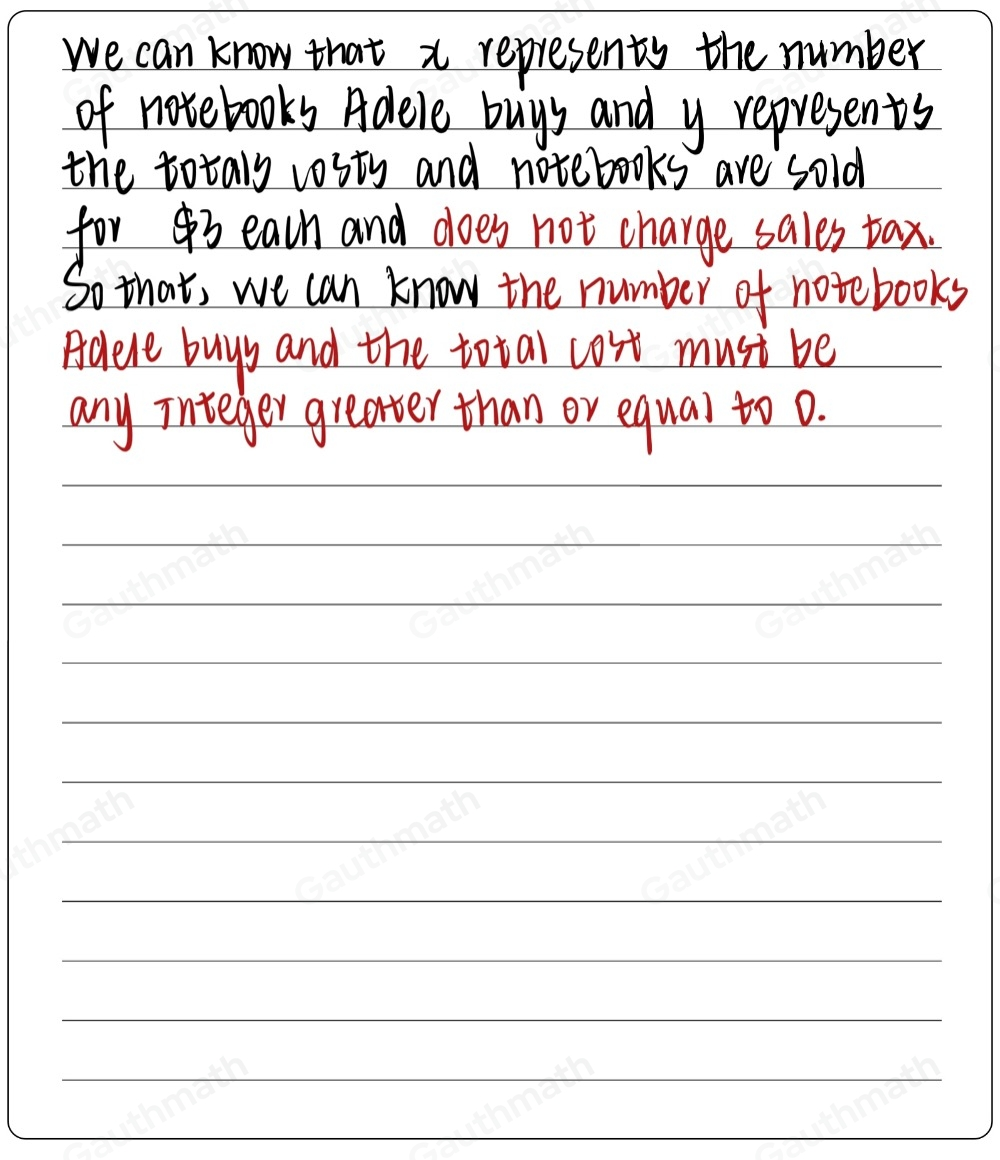A store sells notebooks for $ 3 each and does not charge sales tax. If x represents the number of notebooks Adele buys and y represents the total cost of the notebooks she buys, which best describes the values of x and y? The value of x can be any real number, and y will be a real number. The value of x can be any real number greater than or equal to 0, and y will be a real number greater than or equal to 0. The value of x can be any integer, and y will be an integer. The value of x can be any integer greater than or equal to 0, and y will be an integer greater than or equal to 0.
Question


